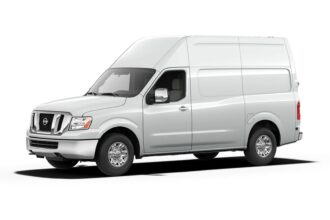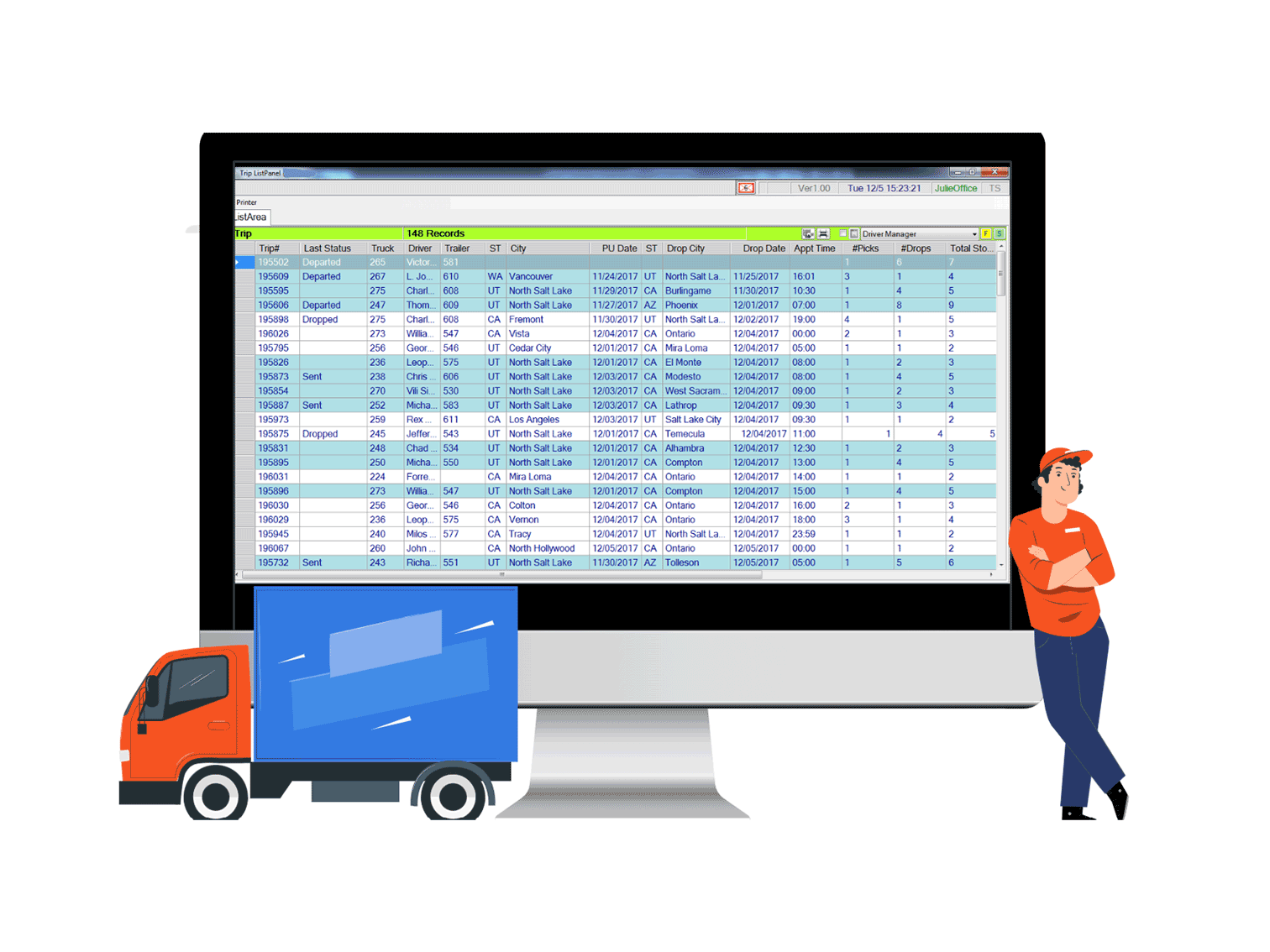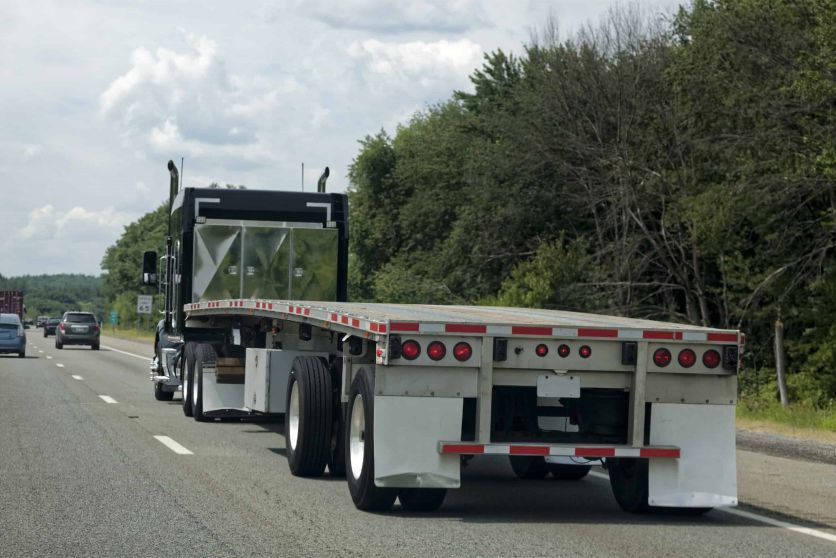Table of Contents
Our Verdict
Launching a furniture truck business is an exciting and lucrative entrepreneurial venture if done right. However, it also requires significant upfront investment and hands-on effort to get off the ground and become profitable.
A furniture truck business is best for you if you have ample start-up capital, furniture industry experience, business management skills, and a willingness to put in long hours. For you or your team, operating a local or regional delivery and moving service catered to furniture sellers and buyers can be a stable, worthwhile business. However, furniture trucking requires covering high costs regardless of sales volumes, so sufficient demand is imperative.
Overall, the verdict is that a furniture trucking business is a good idea with the right ingredients and execution. But it’s not a simple business to start and run profitably. Carefully consider the pros and cons before jumping in.
Pros
- Ensures Steady Demand: Frequent relocations in the U.S. create a consistent need for furniture transportation services, ensuring a steady demand for your offerings.
- Benefits from E-commerce Growth: The increasing popularity of online furniture sales opens up additional business opportunities as more customers seek delivery and assembly services.
- Cultivates Local Partnerships: Collaborating with nearby furniture stores can establish a reliable stream of business, particularly when fostering long-term partnerships.
- Encourages Repeat Business: Providing smooth, damage-free moves leads to repeat business and positive referrals, enhancing your reputation.
- Offers Flexible Pricing: Attracting a diverse customer base is possible by offering competitive pricing and versatile service options, including packing and assembly.
Cons
- Faces Intense Competition: The furniture transportation industry’s high competitiveness, with both small and large players, poses challenges in standing out.
- Struggles with Labor Challenges: The difficulty of hiring and retaining skilled movers, coupled with high turnover rates, can disrupt operations and increase labor costs.
- Requires Liability and Insurance: Comprehensive insurance coverage to ensure valuable furniture items’ safety can be expensive.
- Involves Regulatory Compliance: Meeting federal, state, and local regulations, encompassing safety standards and permits, is crucial but complex and time-consuming.
- Faces Fuel Cost Fluctuations: Operating expenses are significantly impacted by fluctuating fuel prices, affecting overall profitability.
- Experiences Seasonal Variability: Demand may fluctuate seasonally, with peak periods coinciding with the spring and summer moving season, necessitating financial planning.
- Manages Customer Expectations: Maintaining high standards of careful furniture handling is essential, as any damage or mishandling can lead to disputes and negative reviews.
- Adapts to Economic Sensitivity: Economic downturns can lead to reduced moving and furniture purchases, impacting business operations.
Who Furniture Truck Business Is Best For
To establish a thriving furniture truck business, certain conditions and factors are crucial. This business venture is most suitable if you:
- Have a substantial start-up capital ($75,000 to $100,000+ recommended)
- Build a team with furniture industry and business management experience
- Operate and maintain light to medium duty trucks
- Have strong sales skills to secure accounts and contracts
- Work long, physically demanding hours
- Want a stable business with steady demand
- Stay in regions with high furniture store density and customer bases
- Operate in states with major metro areas and dense population – Metro regions like Los Angeles, New York City, Chicago, Dallas, Houston, Philadelphia, and Miami offer built-in customer bases from all the households and furniture outlets needing local delivery services. Prepare to deal with congestion.
- Live in states with thriving furniture manufacturing – North Carolina, California, Indiana, Mississippi, and Virginia have thriving furniture manufacturing sectors. This provides a natural customer base needing inbound supply deliveries and outbound product distribution that a local trucking company can service. Proximity to factories and warehouses provides an advantage.
- Want to try states attracting many new residents – Boom states like Texas, Florida, Arizona, Washington, Colorado, and the Carolinas are growing quickly as people relocate. Be cautious if moves slow when economic winds shift.
- Work in states with lower regulation – Texas, Florida, South Dakota, Wyoming, and other states with less red tape make it simpler, faster, and cheaper to get licensed and compliant. Minimal regulatory hassle helps you get rolling quicker.
Who Furniture Truck Business Isn't Right For
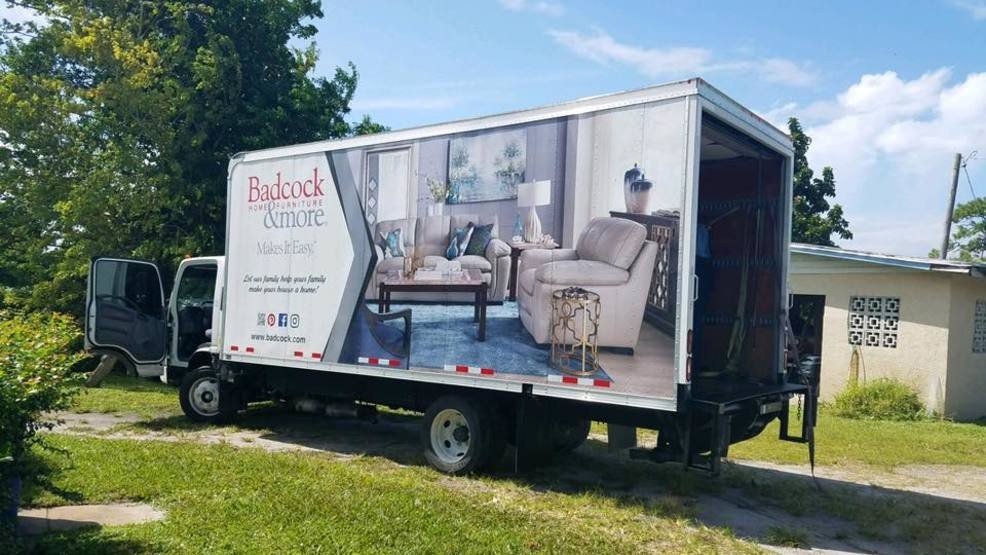
On the other hand, think twice about starting a furniture truck business if you:
- Have little start-up capital or access to financing
- Lack logistics, operations, or management expertise
- Have a strong dislike to manual labor and hands-on work
- Lack sales skills to secure furniture store clients
- Want a passive, semi-absentee owner business
- Lack industry connections or furniture experience
- Struggle handle fluctuations in demand seasonally
- Seek quicker growth and profits
- Dislike extensive permitting/regulations
- Stay in states with harsh winter weather
- Do not have the capability to cover more ground in states lacking metropolitan hubs
- Operate in a state with minimal furniture manufacturing
What Furniture Truck Business Offers
If you wish to start a furniture trucking operation, here are some key benefits and offerings:
- Move furniture for sellers, buyers, and households
- Offers flexible services like local delivery, long-distance moving, warehousing
- Serves a mix of business clients (furniture stores, manufacturers, warehouses) and residential clients
- Focus on regionally or expanding coverage over time
- Contract with third-party moving brokers
- Provide add-on services like packing, crating, set-up, etc.
- Lower overhead compared to a storage facility or full-scale moving company
- Combine hands-on work with business ownership appeal
- Scale over time and operating multiple trucks
Furniture Truck Business Details
Digging further into the operational details, furniture truck businesses requires you to:
- Own or lease a one ton or larger furniture truck or van
- Acquire state trucking permits and maintaining proper insurance
- Equip drivers with smartphones, GPS devices, and computers for dispatching and coordination
- Provide the necessary tools for loading, securing, and moving furniture safely
- Establish uniforms and branding for a professional appearance
- Secure a warehouse or storage space if offering storage services
- Develop marketing materials and honing sales skills to promote services effectively
- Implement bookkeeping and invoicing systems for financial management
- Ensure that drivers hold a CDL and any special licenses required for operating the vehicles
- Have the physical capability to lift, secure, and maneuver heavy furniture items
- Maintain keen attention to detail and a strong customer service focus
Attempt to shortcut preparation work and compromise safety and quality.
Where Furniture Truck Business Stands Out
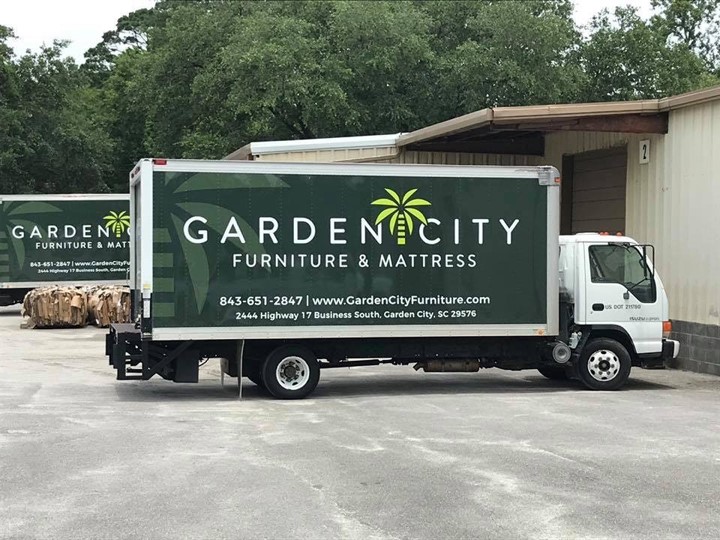
Operating a local or regional furniture truck business offers several strengths, including:
- Specialize in the safe and delicate delivery of fragile and valuable furniture items
- Offer backup storage solutions for furniture goods during transit
- Provide end-to-end coordinating and moving services to streamline the process
- Build trust and long-term relationships with a local customer base
- Demonstrate flexibility and responsiveness as a small-scale operator
- Deliver personalized service compared to large moving chains
- Showcase artisan craftsmanship in packing, crating, and set-up services
- Ensure insurance protection and damage-free handling of valuable furniture
- Offer competitive rates and loyalty incentives to regular clients
Where Furniture Truck Business Falls Short
Nonetheless, furniture truck businesses entail facing inherent challenges and limitations like:
- Incurs significantly high initial start-up costs covering vehicles, equipment, licensing, and more.
- Struggle to navigate a steep learning curve in mastering various operational and sales elements.
- Perform physically demanding manual work.
- Work long hours and deal with unpredictable schedules.
- Be susceptible to seasonal fluctuations or economic downturns.
- Experience delayed and inconsistent cash flow, which can hinder scaling efforts.
- Operate within a limited geographic reach when compared to national moving companies.
- Struggle to differentiate themselves from competitors, especially concerning price.
- Find it challenging to match the scale and breadth of mega-movers.
How to Legalize your Furniture Truck Business
To qualify for a furniture truck business, you must:
- Possess a valid regular driver’s license with at least one year of driving experience.
- Acquire a Commercial Driver’s License (CDL).
- Obtain a DOT number for interstate freight transport.
- Meet DOT medical clearance and compliance standards.
- Secure trucking-related insurance policies.
- Successfully complete a road test to demonstrate vehicle handling skills.
- Establish an LLC or an official business structure.
- Register the business for permits, licenses, and tax IDs.
How to Start a Furniture Truck Business
Typical steps to launching a compliant furniture truck business include:
Determine Your Business Mode
Decide whether to offer local or long-distance delivery. Consider operating a warehouse with inventory versus direct shipping. You may choose to specialize in certain furniture types or provide a wide selection.
Obtain Proper Licensing & Permits
Secure your business license, tax registrations, trucking operating authority, and any required driver’s licenses. Make sure to comply with DOT regulations. Obtain route approvals and zoning permits.
Buy Your Trucks & Equipment
Purchase or lease box trucks or vans. Outfit them with interior padding, straps, blankets, and other items to secure furniture. Install lift gates, hand trucks, and dollies to move items. Use GPS and routing software.
Set Up Your Operations
If warehousing inventory, secure appropriate space. Create efficient order processing and routing procedures. Train staff on loading/unloading protocols. Use route optimization software.
Market Your Delivery Services
Promote to local furniture stores, warehouses, and directly to homeowners online. Leverage search and social media ads. Emphasize careful handling and timeliness.
Establish Your Rates
Factor in costs for vehicles, labor, insurance, and fuel. Charge by the mile or hourly. Add fees for stairs, waiting time, etc. Offer discounts for regular bulk clients.
Grow Your Business
Expand your territory as demand increases. Add more trucks and drivers as needed. Consider diversifying into office or appliance delivery.
Focus on providing quality furniture delivery through strategic planning, efficient operations, good customer service, and safe handling of items.
Do not skip the proper preparation for this hands-on, capital-intensive venture. Rushing into operations without finishing all compliance steps can risk safety, quality, and profitability.
>>>GET SMARTER: Furniture Truck Business: Should I Set Up As An LLC?
Alternatives to Furniture Truck Business
If launching a full furniture truck business seems daunting, you can work for an existing furniture delivery company, operate a general cargo delivery business handling all types of goods not just furniture, lease your truck(s) and driving services to a delivery company.
Moreover, if launching is not the problem, but the type of service, explore other options like:
- Establish a food delivery service
- Launch a ridesharing service
- Start an auto transport business
- Explore freight brokering
- Consider a moving company
- Begin a courier service
- Start a medical transport service
- Venture into boat transport
- Explore RV transport
- Consider a self-storage business
Pro Tips
The top tips include:
- Gain direct furniture delivery experience first through a moving or trucking company
- Spend ample time planning and preparing prior to launching
- Buy quality truck(s) and equipment to prevent breakdowns and damage
- Build relationships with local furniture sellers to secure reliable accounts
- Focus on specialized services larger firms cannot easily match
- Deliver exceptional care in handling customers’ valuables
- Create a memorable brand and professional appearance
- Monitor costs vigilantly in the first years until profitability hits
- Outsource non-core functions like maintenance and accounting
- Stay adequately insured against all risks and liabilities
- Talk to seasoned furniture truck owners to learn from their experience
- Watch metrics
- Review pricings
- Answer phones! – Don’t let calls from prospective customers go to voicemail, especially in the critical first years.
Recap
Overall, a furniture trucking business provides fulfilling, profitable work for you. However, sufficient start-up funding, trucking and logistics expertise, business acumen, and sales ability are fundamental. The model works best when you put in dedication who take the time to build up unique furniture moving services and a loyal customer base over consistent quality and care.
To start a furniture truck business is lucrative but requires significant capital, industry expertise, and hard work. It’s best if you’re willing to put in long hours and excel in regions with high demand. Consider the pros and cons, and ensure compliance with regulations and insurance. Offering specialized services and prioritizing customer care are key to success. Alternatively, you can explore other delivery business opportunities if furniture trucking seems daunting.
In certain states, gaining prior hands-on moving experience may be advisable before full business ownership. Be realistic about the effort and grit you need. Do thorough research and planning before deciding if furniture trucking is right for you in your state.















